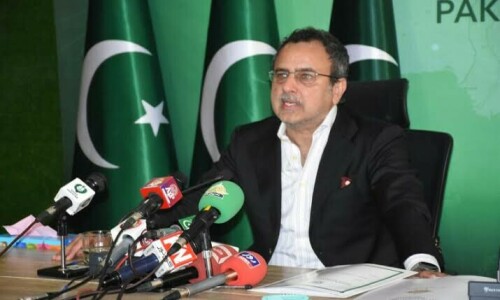WASHINGTON, Oct 6: Two US raids in Africa show the United States is pressuring Al Qaeda, officials said on Sunday, though a failure in Somalia and an angry response in Libya also highlighted Washington’s problems.
In Tripoli, US forces snatched a Libyan wanted over the bombings of the US embassy in Nairobi 15 years ago and whisked him out of the country, prompting Secretary of State John Kerry to declare that Al Qaeda leaders “can run but they can’t hide”.
But the capture of Nazih al Ragye, better known as Abu Anas al-Libi, also provoked a complaint about the “kidnap” from the Western-backed prime minister; he faces a backlash from armed Islamists who have carved out a share of power since the West helped Libyan rebels oust Muammar Qadhafi two years ago.
In Somalia, Navy SEALs stormed ashore into the Al Shabaab stronghold of Barawe in response to the attack last month on a Kenyan mall but, a US official said, they failed to capture or kill the unnamed target among the Somali allies of Al Qaeda.
Mr Kerry, on a visit to Indonesia, said President Barack Obama’s administration was “pleased with the results” of the combined assaults early on Saturday: “We hope this makes clear that the United States of America will never stop in its effort to hold those accountable who conduct acts of terror,” he said.
Two years after Navy SEALs finally tracked down and killed Al Qaeda founder Osama bin Laden in Pakistan, a decade after 9/11 attacks on the United States in 2001, the twin operation demonstrated the reach of US military forces in Africa, where militancy has been in the ascendant.
The forays also threw a spotlight on Somalia’s status as a fragmented haven for Al Qaeda allies more than 20 years after Washington intervened in vain in its civil war and Libya’s descent into an anarchic battleground between rival bands on the Mediterranean that stretches deep south into the Sahara.
US Defence Secretary Chuck Hagel said they showed Washington would “spare no effort to hold terrorists accountable”.
Yet disrupting its most aggressive enemy, in an oil-rich state that is awash with arms and sits on Europe’s doorstep, may have been more the priority in the Libya raid than putting on trial a little known suspect in the 1998 bombings of the US embassies in Kenya and Tanzania that killed 224 people.
Clearly aware of the risks to his government of complicity in the snatching of Libi as he returned to his suburban home from dawn prayers, Prime Minister Ali Zeidan said: “The Libyan government is following the news of the kidnapping of a Libyan citizen who is wanted by US authorities. The Libyan government has contacted US authorities to ask them to provide an explanation.”—Agencies










































Dear visitor, the comments section is undergoing an overhaul and will return soon.